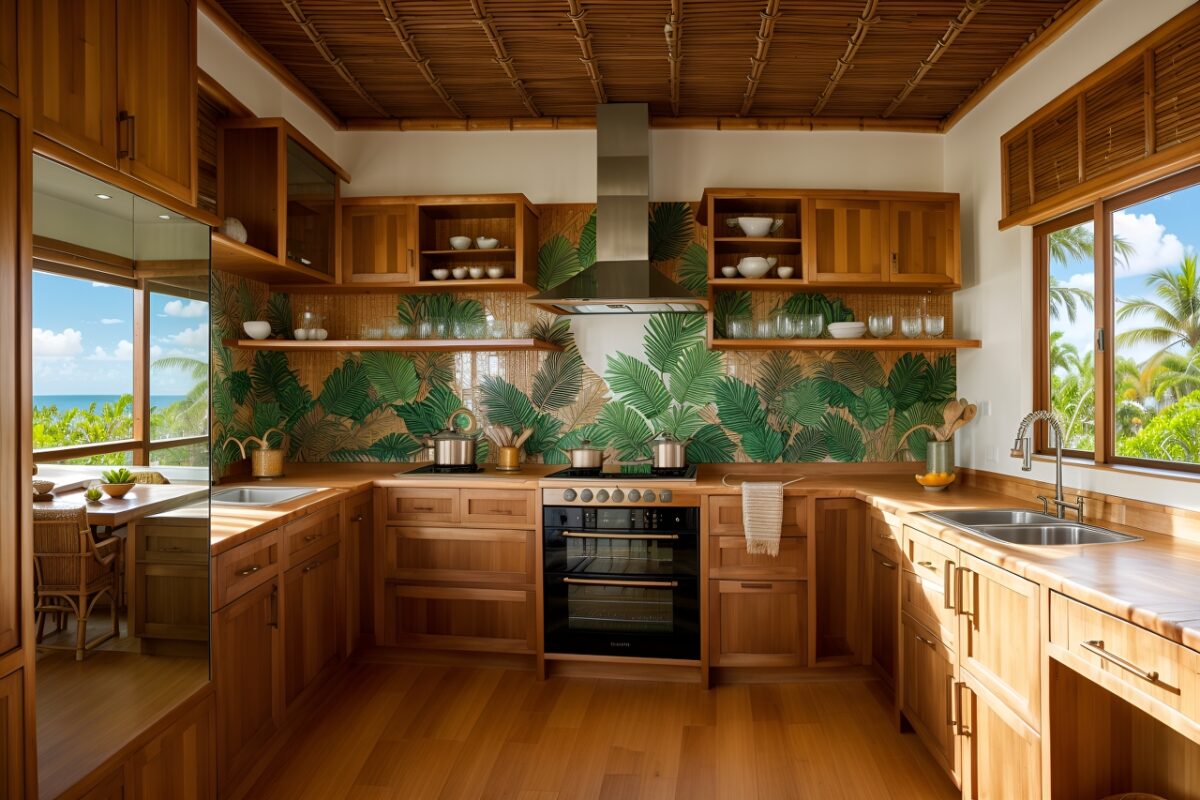20 Screening Evergreen Trees for Indian Home Landscaping
The integration of screening evergreen trees serves as an artful blend of practicality and natural beauty. These screening evergreen trees, with their lush foliage and diverse benefits, play a crucial role in enhancing privacy. It also blocks unwanted views, and contributes to the overall well-being of homeowners. From the majestic Jamun trees to the versatile bamboo, each screening evergreen tree brings its own unique charm to Indian homes. Thus, it creates secluded havens shielded from prying eyes and noise intrusion. This exploration delves into the enchanting world of evergreen screening trees, celebrating their aesthetics, cultural significance, and other advantages for Indian households.
1. “Jamun Trees: Nature’s Privacy Guardians”
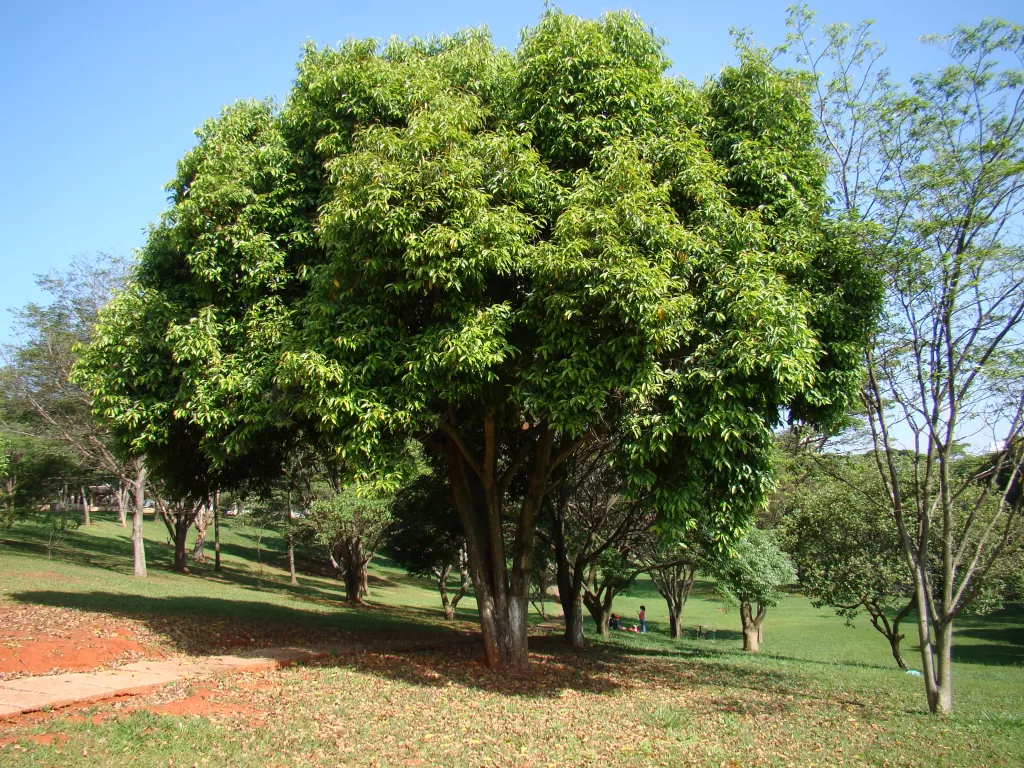
Jamun trees, also known as Syzygium cumini or Indian blackberry, actively reach towering heights of up to 30 meters. They actively boast dense canopies adorned with glossy, dark green leaves. These trees actively provide impeccable coverage and privacy for Indian homes, actively shielding them from prying eyes and noise intrusion. Moreover, they actively gift homeowners with bountiful harvests of luscious, purple-coloured fruit. In addition to their practical virtues, Jamun trees actively contribute to the aesthetic charm of Indian landscapes. Despite their majestic stature, these trees actively demand minimal upkeep once established. It also actively thrives in harsh conditions with their drought-resistant nature.
2. Guava Tree
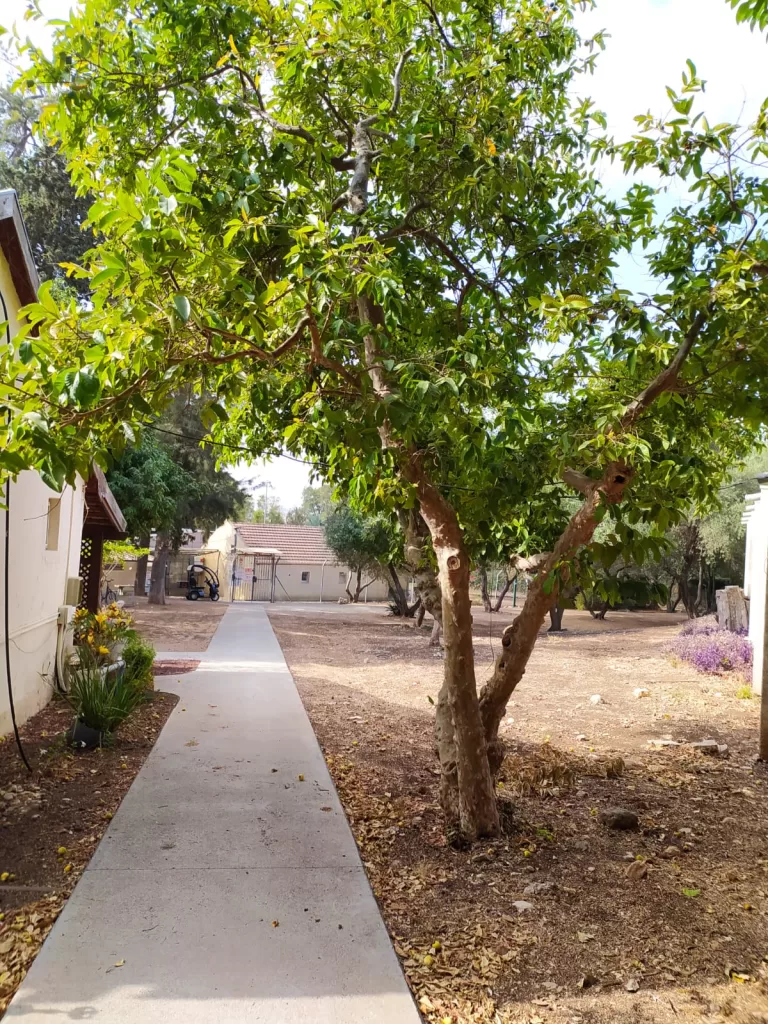
The guava tree, also known as Psidium guajava, is an evergreen species that serves as an excellent screening tree. With its lush green foliage, the guava tree provides effective privacy, creating a natural barrier such as its moderate size, which suits residential spaces, and its year-round evergreen canopy that ensures continuous privacy. Its adaptable nature allows it to thrive in various soil types, making it a versatile choice . Furthermore, the guava tree’s low-maintenance requirements and potential for fruit harvest make it a valuable addition. Thus, it offers not only privacy but also practical benefits for households.
3. Moringa Trees
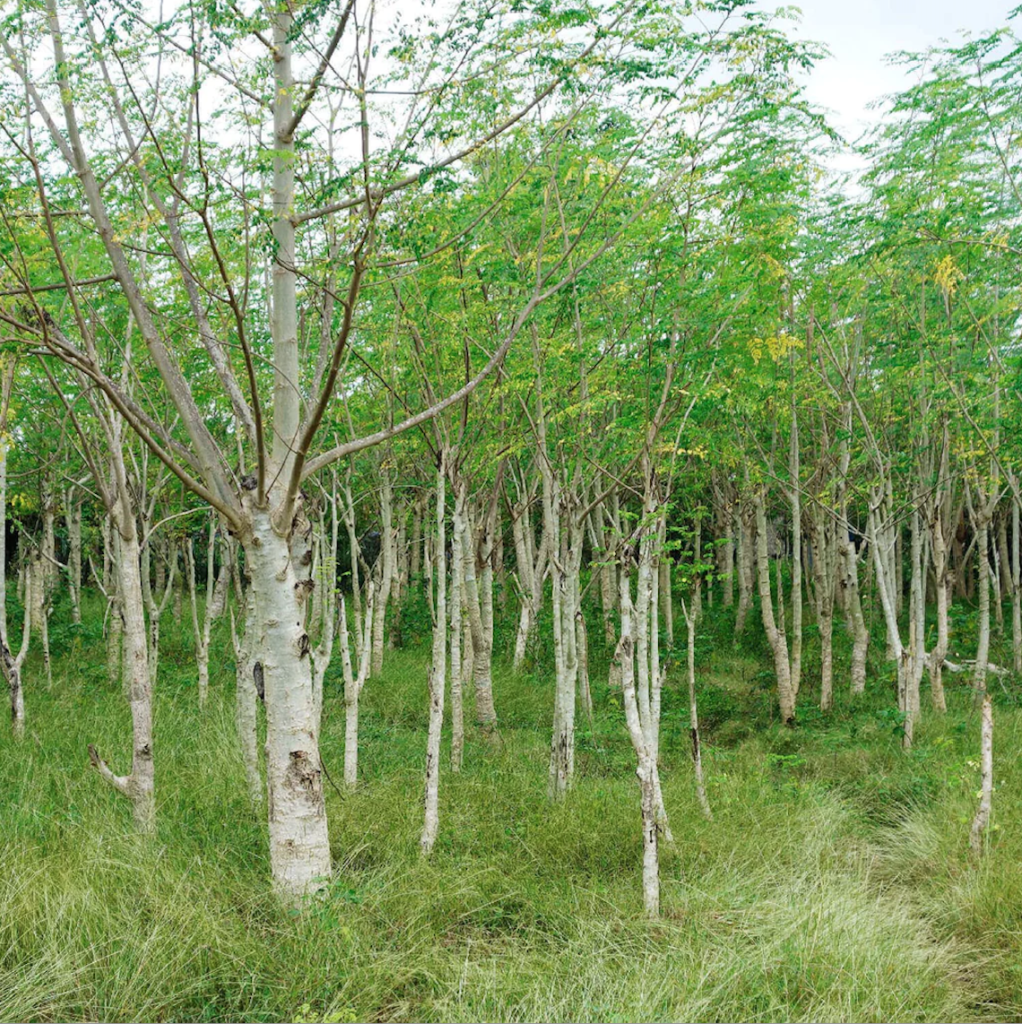
Moringa trees, renowned for their rapid growth and rich nutritional content, serve as an ideal screening solution for Indian homes. Their fast-growing nature quickly establishes a green barrier, providing privacy and security. These trees, with their dense foliage and natural fence-like structure, effectively block noise and dust pollution, enhancing the living environment. Their low maintenance requirements make them an easy-to-care-for option. Moringa’s adaptability to various soil conditions and its ability to thrive in India’s diverse climates further underline its suitability.
4. Eucalyptus Trees
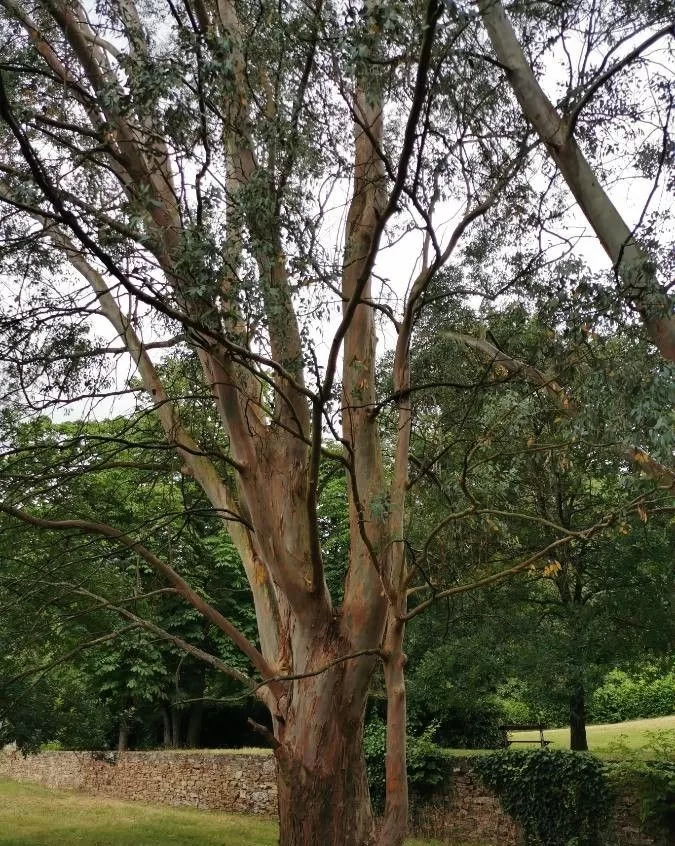
Eucalyptus trees, originating from Australia, rapidly grow tall with dense foliage, making them ideal screening trees for Indian homes. Their fast growth rate ensures the quick establishment of a natural barrier. Thus, it provides privacy from neighbouring views and reduces noise pollutio. At the same time, their aromatic leaves offer a refreshing scent and potential insect-repellent properties. Additionally, their low-maintenance nature and adaptability to diverse climates and soil types make them suitable for Indian environments. As screening trees, they create a tranquil and private living space, enhancing the quality of life for homeowners in India.
5. Whistling Pine Tree
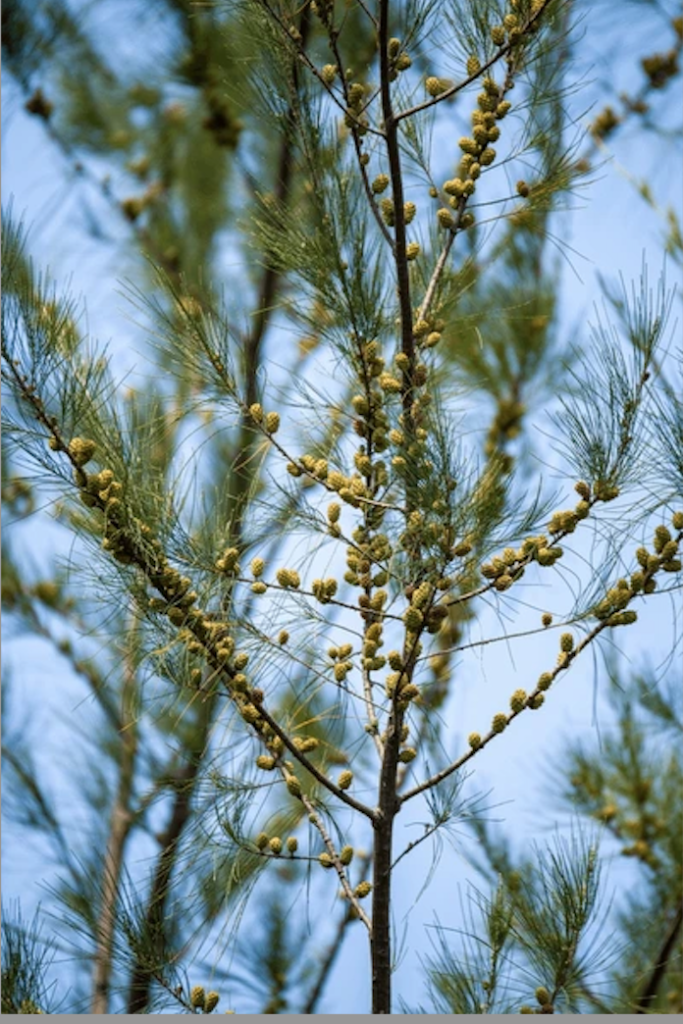
Casuarina equisetifolia, commonly known as the Australian pine or whistling pine, stands as a versatile choice for Indian homes. Its evergreen nature ensures a consistent and attractive privacy screen throughout the year. With a fast growth rate and dense, feathery foliage, this tree quickly establishes itself, providing effective screening for residents. Indian homes, especially those in coastal regions, benefit from its remarkable salt tolerance, making it resilient in challenging conditions. Its aesthetic appeal with slender, drooping branchlets adds a touch of greenery to the landscape.
6. Sacred fig Tree
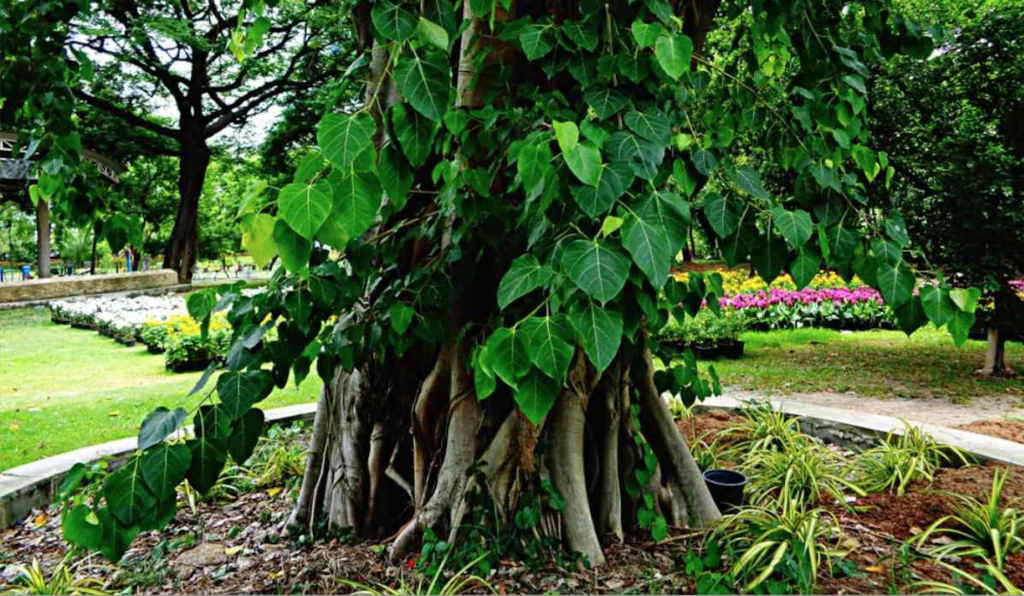
Ficus religiosa, commonly known as the Sacred Fig, stands as a versatile and culturally significant evergreen tree. Its continuous, dense canopy of heart-shaped leaves makes it an ideal choice for providing year-round greenery and effective screening. Planted strategically, the Sacred Fig serves as a natural privacy barrier around Indian homes. Sacred fig’s ability to thrive in diverse climates further enhances its suitability for providing screening in residential spaces.
7. Ashoka Tree
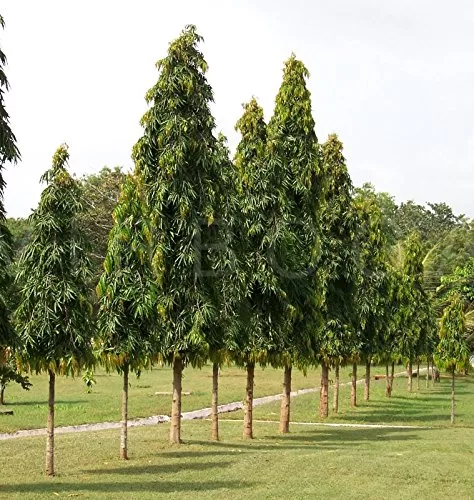
The Ashoka tree is a revered and sacred evergreen tree in Indian culture, belonging to the Caesalpiniaceae family. Known for its slender branches and compound leaves with numerous leaflets, it boasts attractive orange-yellow flowers and woody, flat pods. Apart from its ornamental value in gardens and landscaping, the Ashoka tree serves as an ideal screening tree for Indian homes. Its dense foliage and branching pattern offer effective privacy, shielding homes from direct sunlight and heat. This evergreen tree, adaptable to various soil types and climates, ensures year-round screening benefits. Thus, it makes it a low-maintenance yet aesthetically pleasing choice for home gardens.
8. Child Life Trees
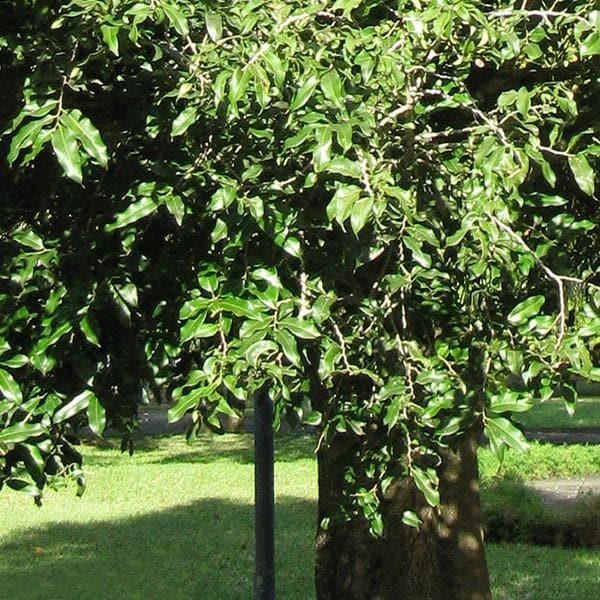
Putranjivaroxburghii, commonly known as the child-life tree, is an evergreen species native to Southeast Asia, particularly India. With its glossy, leathery leaves and a height ranging from 10 to 15 metres, this tree serves as an ideal screening option for Indian homes. Its evergreen nature ensures year-round privacy and a low-maintenance nature, forming a dense and visually appealing barrier. The tree’s adaptability to various soil types and climates, along with its moderate size, makes it well-suited for smaller home gardens. With its manageable size, it is suitable for smaller residential spaces.
9. Neem Trees
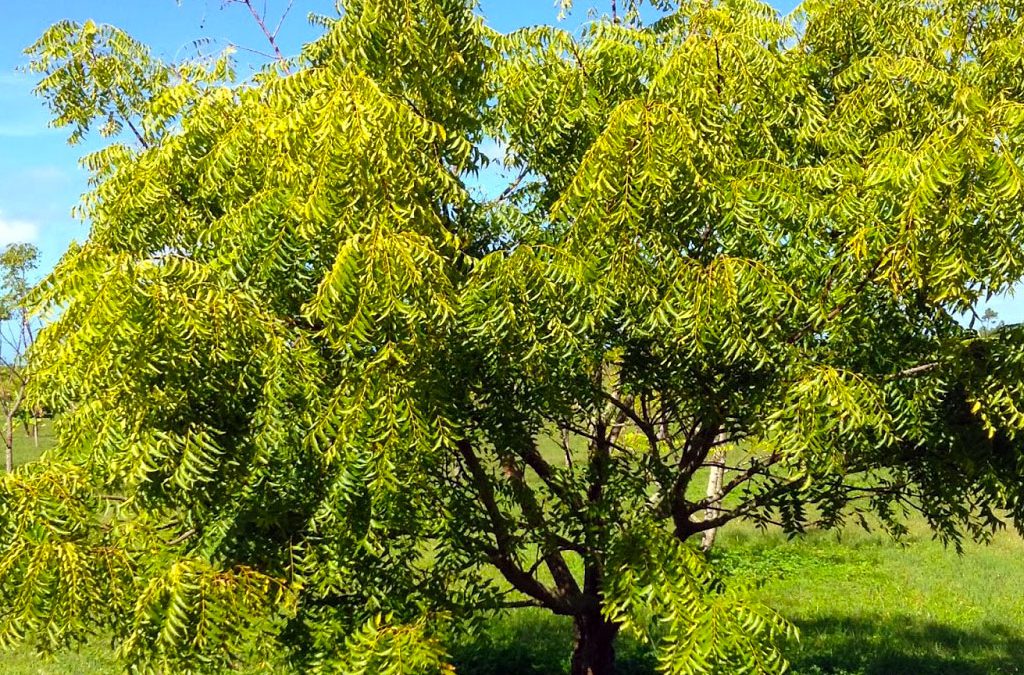
Neem trees, native to the Indian subcontinent, actively contribute to the well-being of households through their multifaceted advantages. Their dense foliage serves as an effective privacy screen, creating secluded outdoor spaces within residential compounds. Moreover, neem trees play a pivotal role in purifying the air, enriching the soil, providing cooling shade, and providing low maintenance, thereby fostering a conducive environment for relaxation and recreation in the vicinity of Indian homes. As they stand tall along property boundaries, neem trees not only delineate spaces but also imbue them with a sense of tranquility and serenity.
10. Bamboo Tree
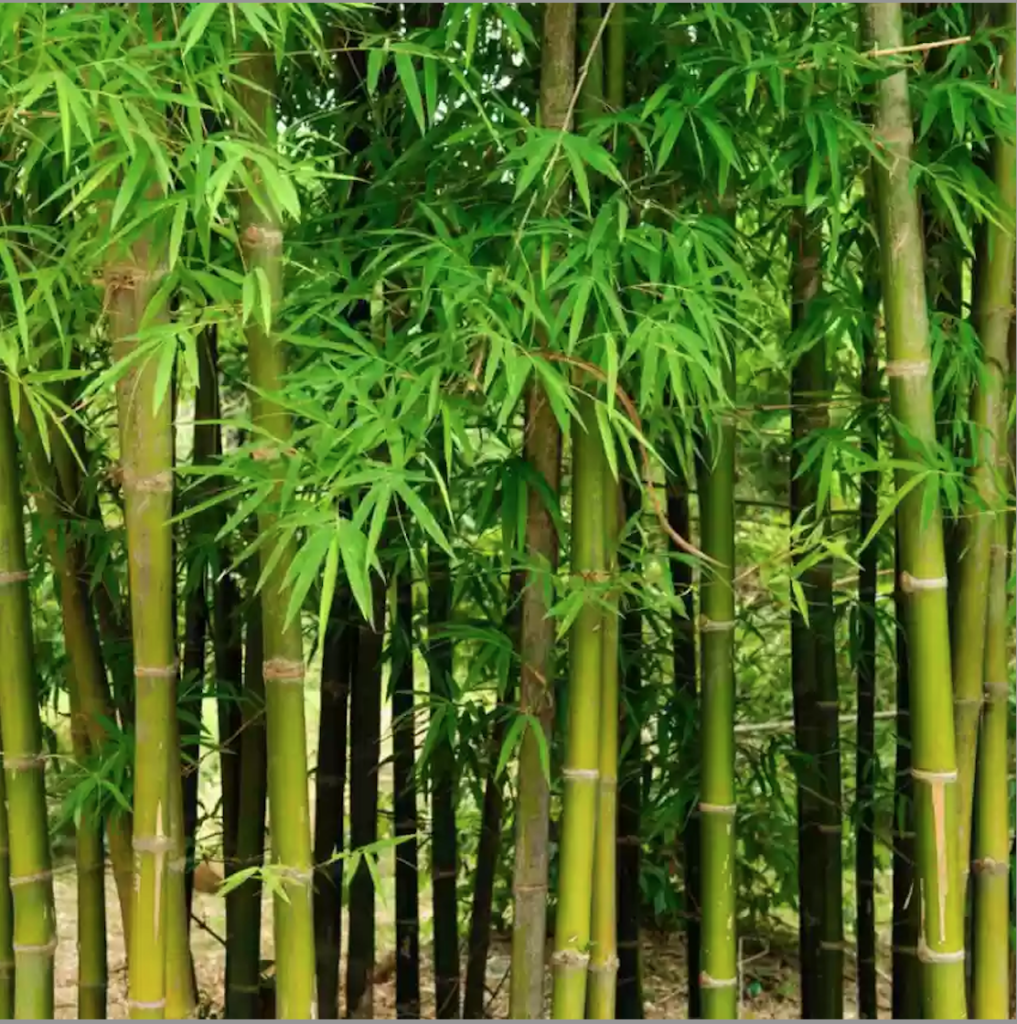
Bamboo, a fast-growing and versatile plant belonging to the grass family, proves invaluable as a screening tree for Indian homes. Its rapid growth rate and dense foliage swiftly establish a natural barrier, offering homeowners privacy and security. This lush greenery not only shields against prying eyes but also acts as a windbreak, particularly beneficial during India’s monsoon seasons. Additionally, bamboo’s low maintenance requirements make it an attractive option for landscaping projects, requiring minimal effort to maintain its dense screen.
11. Jackfruit Tree
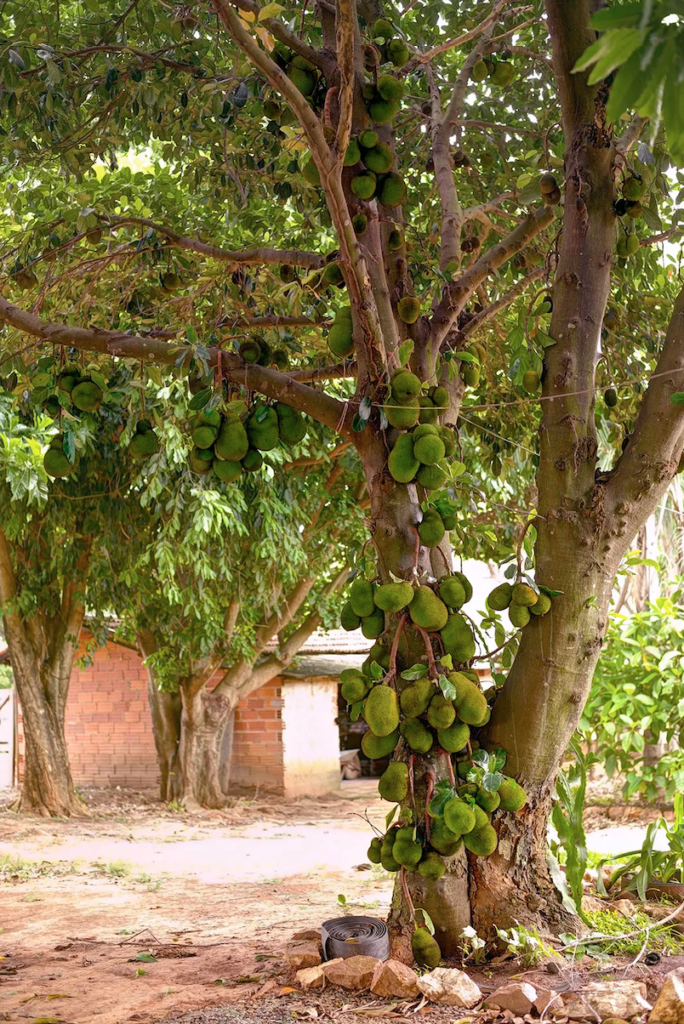
The jackfruit tree, native to southwest India, stands out as an excellent screening option for Indian homes. Its evergreen nature ensures a year-round lush green cover, providing privacy and shade consistently. With a rapid growth rate and a broad, dense canopy, the jackfruit tree quickly establishes itself as an effective natural barrier, blocking unwanted views from neighbouring properties or streets. Well-adapted to the tropical climate of India, this multipurpose tree not only offers screening benefits but also yields large, nutritious fruits and valuable wood for various uses. Its low maintenance requirements, coupled with its aesthetic appeal, make it a practical and visually pleasing choice for landscaping around Indian homes.
12. Nimbo Trees
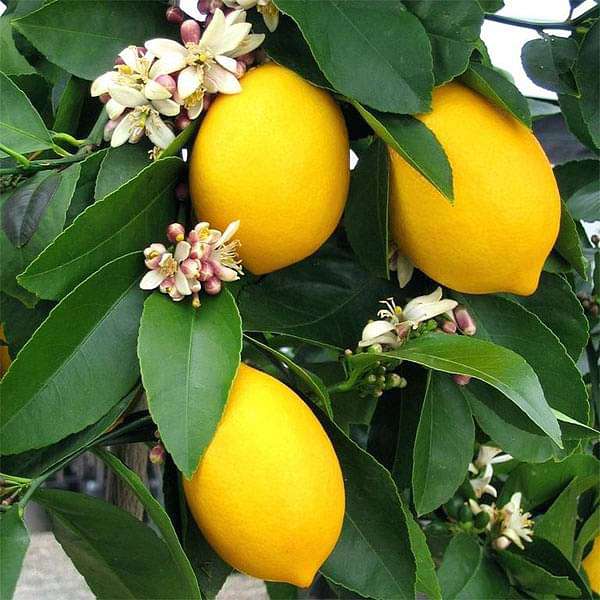
Nimbo trees, native to the Indian subcontinent, swiftly grow to form dense canopies, providing effective screening for Indian homes. With their fast growth rate and evergreen foliage, nimbo trees offer year-round privacy by blocking views and reducing noise pollution from neighbouring properties. Their thick foliage serves as a natural barrier, requiring low maintenance once established. Additionally, nimbo trees emit a natural insect repellent, keeping pests at bay, which is particularly beneficial in regions where insect-borne diseases are prevalent.
13. Sadad Tree
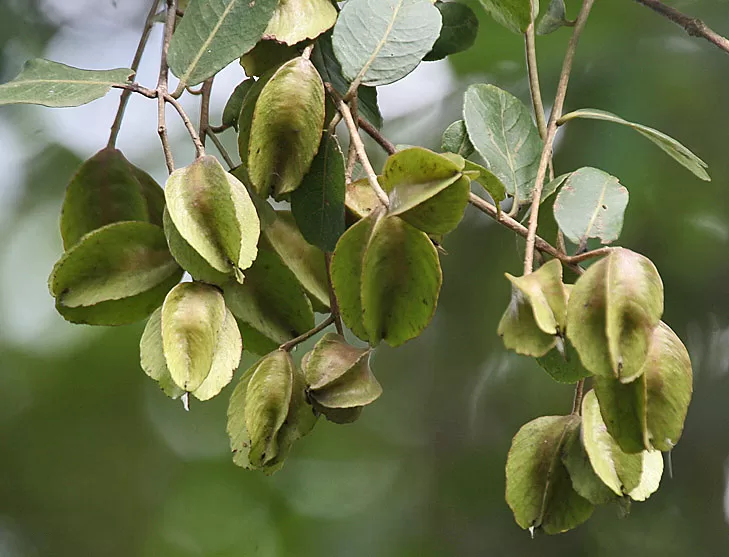
The Sadad tree, also known as Alstonia scholaris, is a tall evergreen native to the Indian subcontinent. With its dense foliage and towering stature, it serves as an ideal screening tree for Indian homes. Planted strategically around residential properties, Sadad trees provide an effective barrier, offering privacy from neighbouring houses and shielding homes from strong winds and harsh sunlight. Additionally, the tree’s fragrant flowers and lush green foliage enhance the aesthetic appeal of the landscape, creating a serene environment for relaxation and rejuvenation. Its low maintenance requirements, combined with its ability to thrive in various soil types, make it a practical choice for homeowners seeking both privacy and beauty in their surroundings.
14. Malabar Nutmeg Trees
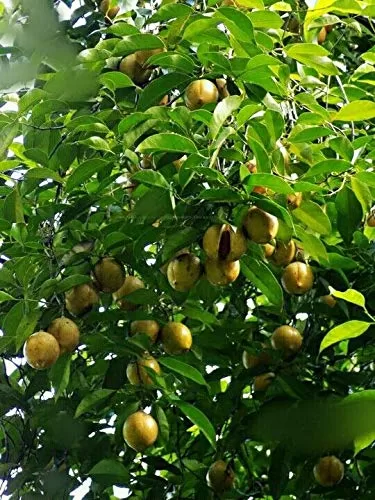
Myristica malabarica, commonly known as the Malabar Nutmeg tree, is an evergreen species indigenous to the Western Ghats of India. With glossy, elliptical leaves arranged alternately on its branches, this tree reaches a height of 15-20 meters, making it an ideal choice for active screening in Indian home landscapes. Its dense foliage serves as a natural visual barrier, providing year-round privacy and seclusion for homes. Beyond its aesthetic appeal, the Malabar Nutmeg tree contributes to the ecological balance by supporting local biodiversity. Planted strategically, it becomes an effective tool to block undesirable views and create an aesthetically pleasing green boundary for residential spaces.
15. The Lalchandan Tree
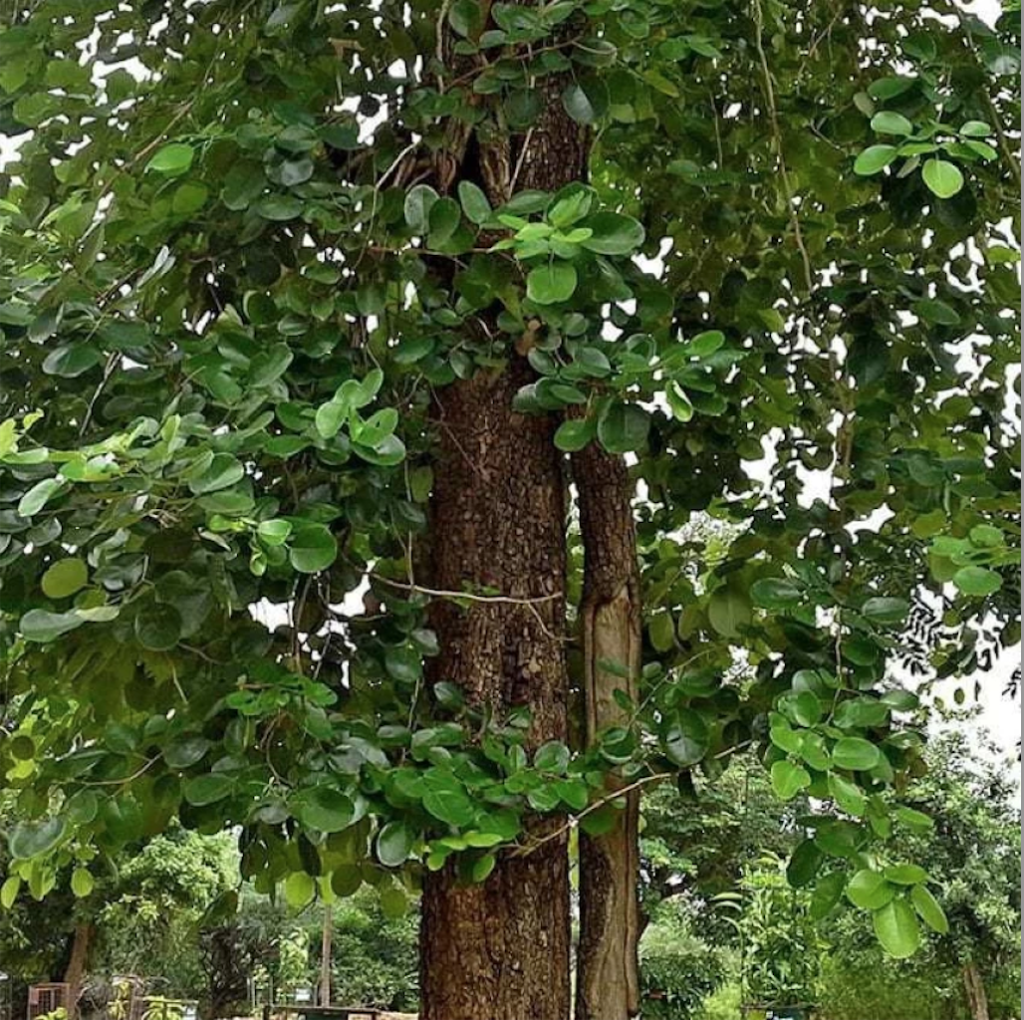
The Lal Chandan tree, also known as Red Sandalwood (Pterocarpus santalinus), is a culturally significant evergreen species native to India. Its striking red heartwood and aromatic fragrance make it prized for various purposes. With its dense foliage, it provides privacy and aesthetic appeal to homeowners. The tree’s vibrant foliage and occasional flowers enhance the landscape while emitting a pleasant fragrance, creating a serene atmosphere. Its low maintenance requirements make it a practical choice for screening, offering both practical and aesthetic benefits to Indian households. Its presence helps mitigate noise pollution and soil erosion, contributing to a healthier living environment in our homes.
16. Amla Tree
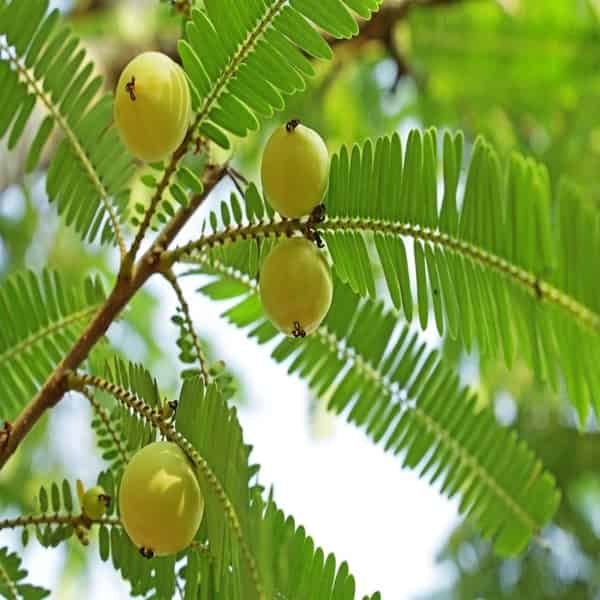
The amla tree, native to the Indian subcontinent, stands as a vibrant and evergreen addition to any landscape. Its medium-sized stature and dense foliage make it an ideal choice for screening purposes in Indian homes. Not only does it provide year-round privacy, reducing noise pollution and acting as a natural barrier against dust and wind, but its lush greenery also adds to the aesthetic appeal of the surroundings. Furthermore, the amla tree’s low-maintenance nature ensures hassle-free upkeep once established, requiring only periodic pruning to maintain its shape and encourage fruit production.
17. Karanj Tree
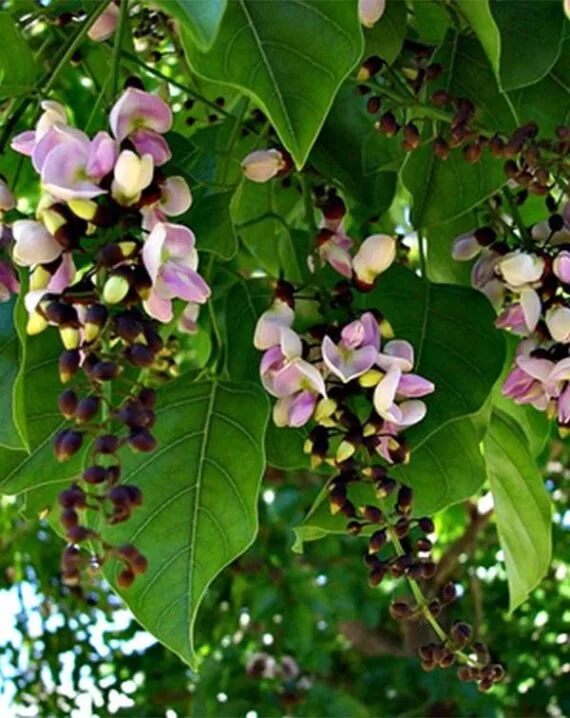
The Karanj tree, a native species to the Indian subcontinent, Southeast Asia, and parts of Australia, stands as a versatile asset for homes across India. With its dense canopy of glossy green foliage and fragrant white or pale pink flowers, it serves as an effective screening tree, providing privacy and reducing noise. As a nitrogen fixing plant, it improves soil fertility and creates a windbreak for residential properties. Its dense foliage acts as a natural barrier, ensuring privacy for homeowners and shielding them from unwanted views and noise pollution. Additionally, the Karanj tree’s ability to absorb and deflect noise enhances urban and suburban environments, making it an ideal choice for homes located near busy roads or urban areas.
18. Mahukar Tree
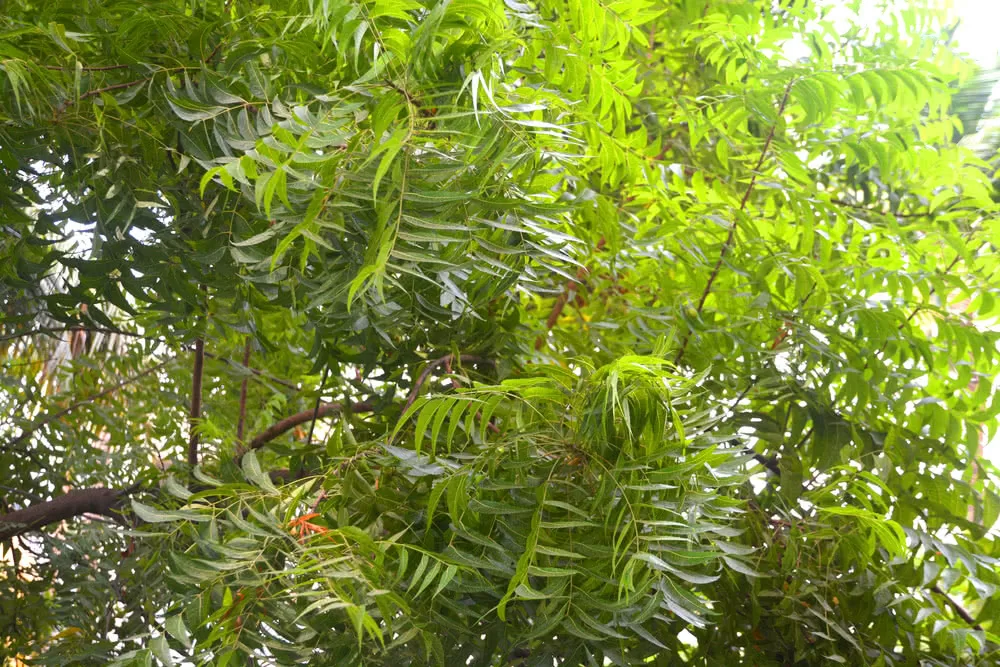
Madhuca longifolia, commonly known as the Madhuca or Mahua tree, thrives in the Indian subcontinent, offering a valuable solution for homeowners seeking effective screening options. With its tall stature and dense, glossy foliage, the Madhuca tree provides year-round privacy and shade. The tree’s low maintenance requirements make it an ideal choice for busy homeowners, while its adaptability to various soil types ensures suitability for different regions across India. As an evergreen species, the Madhuca tree consistently maintains its thick canopy, serving as a natural barrier against prying eyes and noise pollution, thus enhancing the tranquility and privacy of Indian homes.
19. Babool Tree
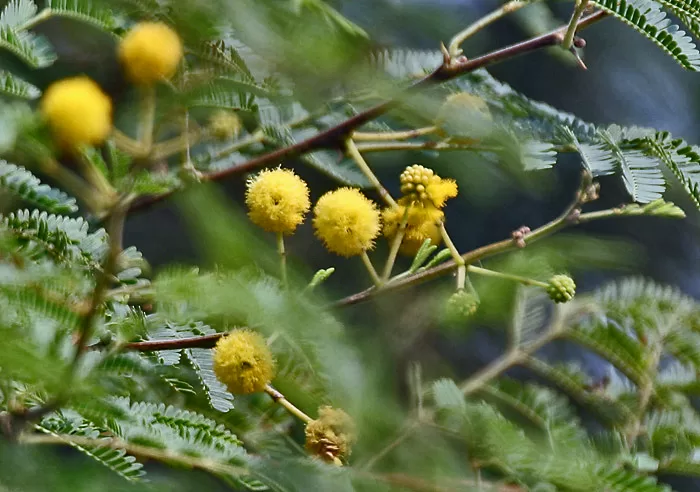
Babool trees, indigenous to India, present an ideal solution for homeowners seeking effective screening options. With their dense canopy of small, dark green leaflets and rapid growth, they swiftly establish themselves as formidable barriers around Indian homes. Their thorny nature acts as a natural deterrent, enhancing security and privacy by deterring intruders. Moreover, these trees thrive in arid conditions, requiring minimal water once mature, making them well-suited for the often dry and hot climate of India. Their extensive root system not only stabilises soil but also provides a habitat for wildlife, contributing to the ecological balance around homes. Their adaptability to arid conditions makes them well-suited for the Indian climate, requiring minimal water once mature.
20. Mango Tree
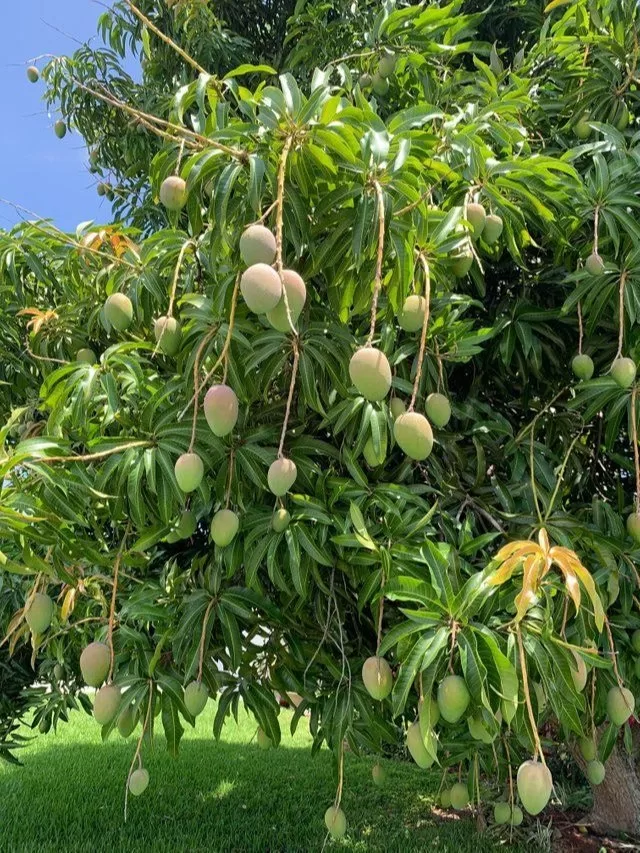
The mango tree (Mangifera indica), native to South Asia, particularly India, stands out as an exceptional screening tree for Indian homes. With its rapid growth and expansive evergreen canopy, it serves as a natural privacy barrier, obstructing unwanted views from neighbouring properties or the street. The tree’s lush foliage, coupled with seasonal fragrant blooms, not only enhances the aesthetic appeal of the surroundings but also provides year-round shade, offering relief from the intense Indian sun. Beyond its screening benefits, the mango tree is a low-maintenance option that yields delicious and nutritious fruits, contributing to both the landscape’s beauty and the homeowners’ dietary diversity.
Conclusion:
As guardians of privacy and symbols of cultural richness, these screening evergreen trees stand tall, not just in stature but also in their multifaceted contributions to Indian homes. From the nutritional bounty of Jamun and Guava to the rapid growth and environmental benefits of Moringa and Eucalyptus, each screening evergreen tree adds its unique signature to the landscape.
Tips for Choosing Screening Evergreen Trees:
- Consider Climate and Soil Conditions: Choose trees that thrive in the specific climate and soil type of your region for optimal growth and longevity.
- Size and Growth Rate: Evaluate the space available and select trees with growth rates and sizes that suit your landscaping needs, ensuring a harmonious integration into your property.
- Maintenance Requirements: Assess the level of maintenance each tree demands. Opt for low-maintenance varieties if you prefer a hassle-free landscaping experience.
- Dual Functionality: Explore trees that offer not only privacy but also additional benefits like fruit production, fragrance, or medicinal properties, enhancing both aesthetic and practical aspects.
- Cultural Significance: Consider trees that hold cultural or religious significance, adding a meaningful touch to your landscape and fostering a connection with traditions.
- Wildlife Attraction: If biodiversity is a priority, choose trees that attract wildlife, contributing to a healthier ecosystem around your home.
- Adaptability: Ensure the chosen trees are adaptable to diverse climates, providing consistent screening benefits throughout the year.
- Aesthetic Appeal: Select trees with appealing foliage, blossoms, or fruits to enhance the visual charm of your landscape.
From the Sacred Fig and Neem bring a touch of spirituality and holistic well-being, while Bamboo embodies sustainability and cultural heritage. In the array of choices, homeowners have the opportunity to select screening evergreen trees that align with their preferences, climate conditions, and cultural values. In embracing these tips, homeowners can navigate the rich tapestry of screening evergreen trees, transforming their outdoor spaces into serene retreats that reflect the beauty and cultural richness of India.
Content Writing And Research By: Ar. Priyadarrshini Karthik
20 Indian Kitchen with Window Design: Practical yet Presentable
With the changing trends in home, a kitchen with window design has stayed a paramount feature of Indian kitchens for its functionality as well as aesthetic purposes. Kitchen is the heart of Indian homes. It’s the most dynamic space in any Indian household— where traditions are passed down, flavors are crafted, and many stories are […]
Read MorePlywood: Your Unsung Interior Design Hero
Plywood – It’s that often overlooked material hiding behind your kitchen cabinets and bookshelves. But let’s give it the spotlight it deserves! This versatile, strong, and affordable material can be a game-changer in your interior design journey. Let’s see more about plywood and how it can help with your interior design. Why Plywood? You might […]
Read More20 Breakfast Counter Designs: Amazing Indian Kitchen Choices
How many of you have the time to enjoy a family meal instead of an individualized quick bite? Breakfast counter designs in India exemplify societal changes, new culinary preferences, and cultural dynamics. With hectic lifestyles and changing work patterns, breakfast has shifted from a family-oriented meal to a functional individual affair. A large wooden table […]
Read MoreParisian Chic: Remodeling Your Kitchen with Modern French Style
Kitchens are arguably one of the most active places in our homes; as such, renovating kitchens can be a complex and at the same time, an engaging task. Assuming that you are in search of a style that will suit both young and older generations and at the same time fashionable yet classic then you […]
Read MoreTADstories with Aakashi Mehta | Aakashi Mehta Designs
Aakashi Mehta, the founder of Aakashi Mehta Designs, shares her passion for interior spaces and design which has made design a crucial part of her life. Aakashi Mehta Designs is an interior design studio situated in the city of Ahmedabad. The firm prioritizes user experience and the requirements of the clients to promote a healthy […]
Read More20 Captivating Wall Color Combinations For Your Living Room
Choosing the perfect wall color combination for your living room can be a game-changer. It sets the tone, reflects your style, and makes your space feel uniquely yours. The right hues can transform a dull room into a vibrant oasis or a chaotic space into a serene retreat. Wall colors can create moods, influence emotions, […]
Read MoreThe Importance of Professional Cleaning in Modern Architecture
Modern architecture, with its clean lines, open spaces, and sleek materials, is a testament to aesthetic appeal in today’s fast-paced world. Preserving these elements requires professional cleaning services, which play a crucial role in maintaining the structures’ visual allure and longevity. According to recent statistics, the cleaning industry is projected to grow by 20% annually, […]
Read MoreModern Dressing Table Designs for Bedroom: 15 Indian Style
Relating to the contemporary is fashion, and adopting that popular style is a trend. Modern dressing table designs for bedrooms seem to be a popular trend, adding glam to fashion. Did you know that some objects are gender-based? Yes, a vanity box, known as an airtight box, contains cosmetics and toiletries for women. Historically, the […]
Read MoreSunmica Designs: Great Shades for Great Beginning
Senses like touch and sight associate well with pleasure and satisfaction. Well-crafted Sunmica designs inject those emotions in varying patterns, textures, and thicknesses. People perceive these designs predominantly as a decorative element to view and comforting to touch. To define, ‘Sunmica’ is the name of a brand that has rewritten the history of laminates with […]
Read More20 Modern Texture Paint Designs to Elevate Your Home Decor
Looking to add a fresh, dynamic touch to your interior design? Modern Texture paint designs is your answer! Unlike traditional flat paint, textured paint brings depth, interest, and personality to any space. Whether you’re aiming for rustic stucco finishes or sleek metallic accents, its versatility lets you customize your walls to match your unique style. […]
Read More




